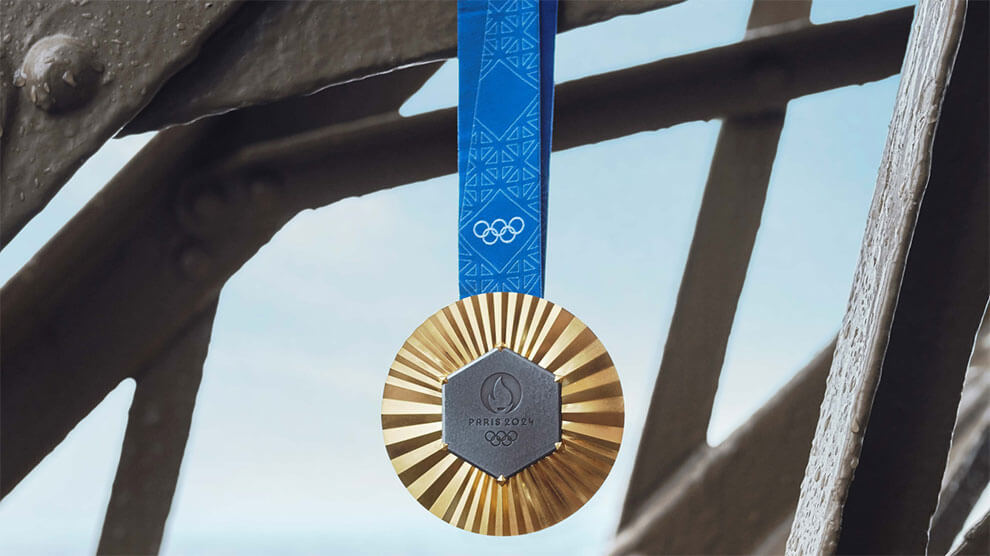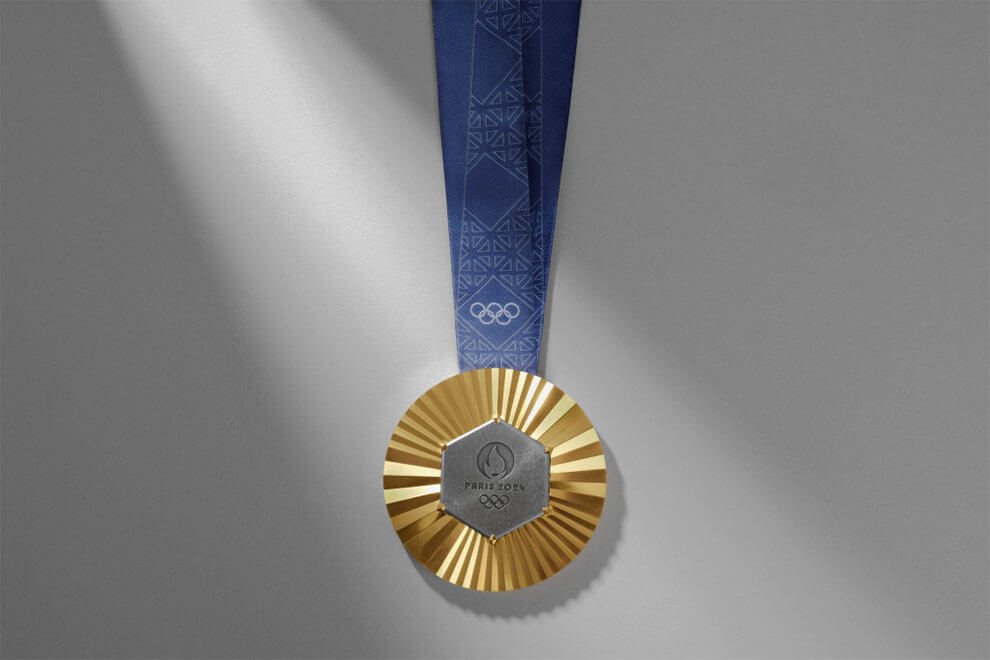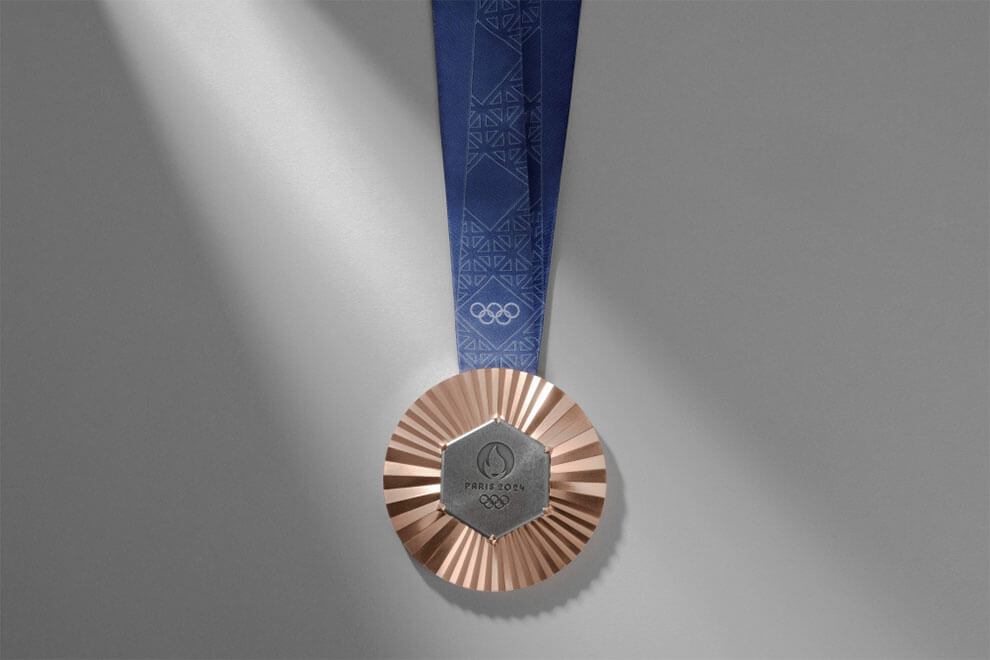Paris 2024 chose France’s iconic symbol–the Eiffel Tower–as the design touchpoint for the Olympic and Paralympic medals. But the Eiffel Tower is not only the inspiration for the design, but also a physical part of it–each medal will feature original iron from the Eiffel Tower. Winning athletes will take a piece of French history home with them.
The Eiffel Tower, which was built in 1889, is made of a type of iron known as “puddle” iron. The puddling process removes excess carbon from the cast iron, leaving iron that is almost pure and incredibly strong. When the Eiffel Tower underwent renovation in the 20th century, some material was removed from the tower and preserved. In honour of the significance of the Paris 2024 Games, the guardians of this historic material, the Société d’Exploitation de la Tour Eiffel, have granted permission for these pieces to live a second life contained within symbols of Olympic achievement.
The Paris 2024 gold medal. Photo credit: Thomas Deschamps
The Paris 2024 Organizing Committee enlisted the expertise of French jeweller, Chaumet, part of the LMVH group, to assist in designing the medals. This collaboration marks the first time a jeweller has created the design for Olympic medals.
Chaumet honed in on three key design elements: the hexagon shape, the radiance of the medals, and the setting.
The original iron from the Eiffel Tower is featured in a hexagon shape in the centre of each medal. This geometric shape has special meaning, as mainland France is nicknamed “The Hexagon” for its approximate shape. 3D lines along the medal beyond the hexagon add radiance so that the medals will flash from afar. The hexagon is affixed to the medal by a claw setting typically associated with precious jewellery. The claws are in the shape of the “Clous de Paris” to reflect the rivets of the Eiffel Tower.

The Paris 2024 Olympic gold medal hangs from the Eiffel Tower, a piece of which is embedded in the centre of each medal. Photo credit: Paris 2024/Cyril Masson
The Olympic medals will be engraved with the sport, discipline, and event of the medallist, in French. The blue medal ribbon will also feature the design of the cross pieces of the Eiffel Tower.
The flip side of the medals features the Greek goddess of victory, Nike, who has been a traditional figure depicted on Olympic medals since 1928, with this particular version of the goddess consistent since 2004. On the Paris 2024 medals, Nike emerges in the foreground with a background depicting the Panathenaic Stadium where the Olympic Games were revived in 1896, as well as the Eiffel Tower.

The back side of the Paris 2024 medals features Nike, the goddess of victory. Photo credit: Thomas Deschamps.
The medals were designed at Chaumet’s home on the right bank of the Siene at Place Vendôme, but will be manufactured on the left bank of the river at the Hôtel de la Monnaie (the French Mint). The Monnaie de Paris last manufactured Olympic medals when Paris hosted the Games a century ago.
Quick medal stats:
- Number of Olympic and Paralympic medals: 5084
- Diameter: 85mm
- Thickness: 9.2mm
- Eiffel Tower insert: 18g
- Gold medal: 529g
- Silver medal: 525g
- Bronze medal: 455g
Source: Olympic


